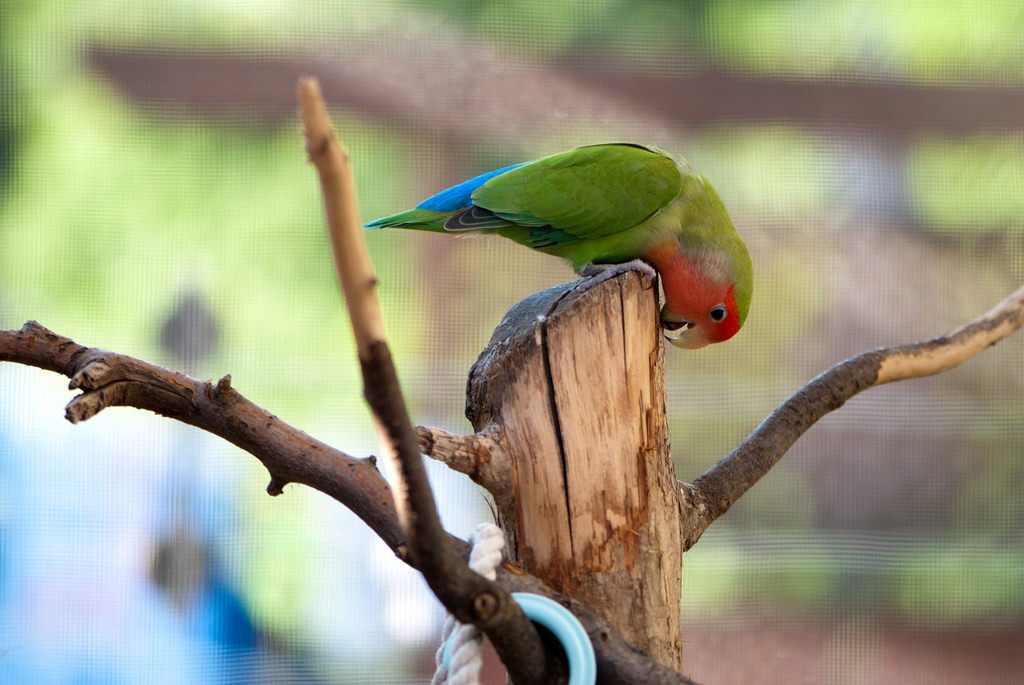Egg binding occurs when a bird is not able to pass an egg through its reproductive system. The stuck egg forms an obstruction that can cause severe health problems and death in birds if not detected early.

Female birds housed without a mate can still suffer from egg binding. The condition is most commonly observed in smaller birds, such as budgerigars, lovebirds, cockatiels, and many finch species.
Egg Binding Causes
There are many factors that can cause or contribute to a bird becoming egg-bound. These include:
- Over-breeding, or encouraging birds to breed outside of their typical breeding season.
- Age: Young birds and old birds are more likely to suffer egg binding.
- Poor diet: Inadequate supply of calcium, vitamin A and protein usually caused by a seed-only diet.
- Poor housing; insufficient room to fly, exposure to temperature extremes, high stress.
- Deformed eggs; usually caused by one of the above factors.
- Cold weather
Egg Binding Prevention
Addressing the above factors are the best way to avoid egg binding. With good housing, sufficient warmth in winter (if necessitated by your local climate), and a varied and nutritious diet, egg binding can be largely avoided.
There are several preventative measures undertaken by breeders to reduce the impact of egg-binding on their flock. Usually these measures are deployed during the colder non-breeding months when egg binding is most likely to occur:
- Add a small amount of cod liver oil and wheat germ oil mixed in with dry seed.
- Provide lots of calcium, either as shell grit, cuttlefish bone or a commercial supplement.
- Keep the aviary as warm as possible with insulation.
Diagnosis
The observable symptoms of egg binding differ between species; but keep an eye out for the following:
- Fluffed feathers
- Weakness, depression and difficult flying
- Swollen vent area
Treatment
Egg-binding can be fatal in just a matter of hours, especially in smaller birds. Treating the birds as early as possible is critical to maximize the chances of survival. Potential treatments include;
- Placing the bird in a heated cage at roughly 30 degrees celcius and increasing the amount of humidity.
- Lubricating the bird’s vent with cooking oil or a non-toxic personal lubricant.
- Rapidly increasing the bird’s calcium levels with a commercial vitamin supplement.
Following the above prevention and treatment tips will give your birds their best shot of avoiding and surviving egg binding. Experienced bird keepers will know that no matter what you do, egg binding can never be completely prevented; so don’t be too disheartened if you lose a bird or two over the winter. It happens to even the most experienced bird keeper.